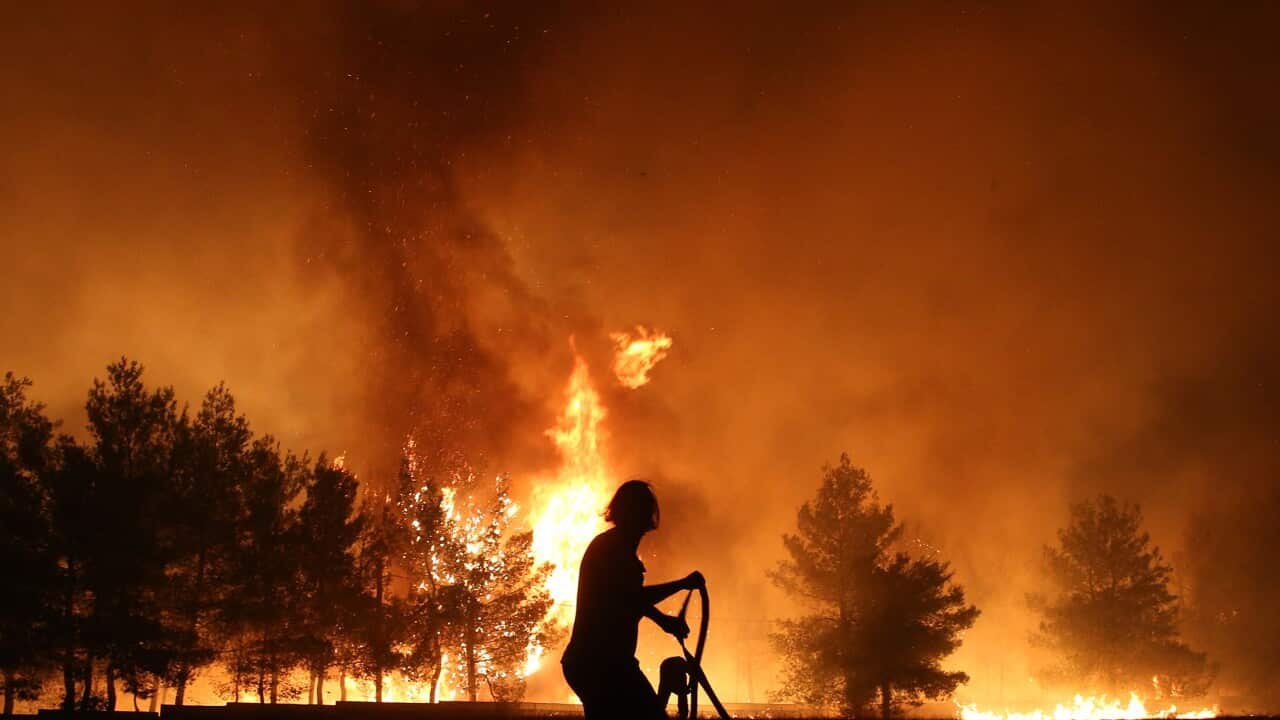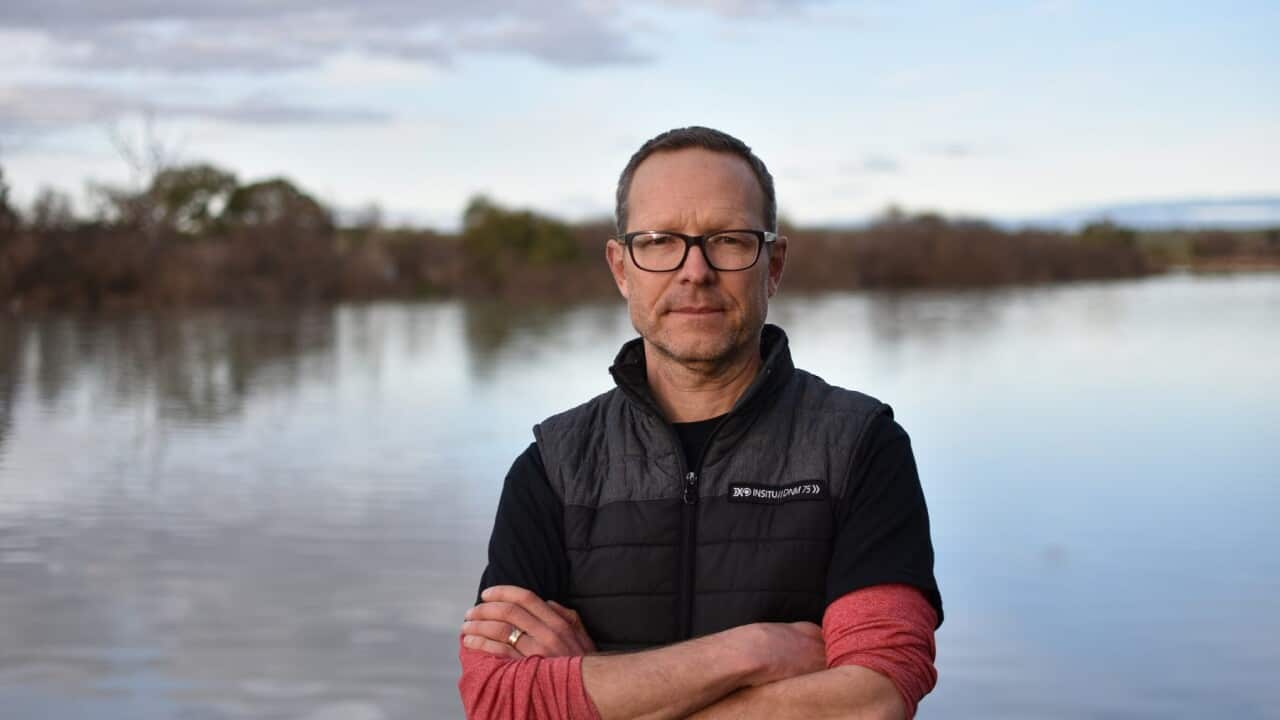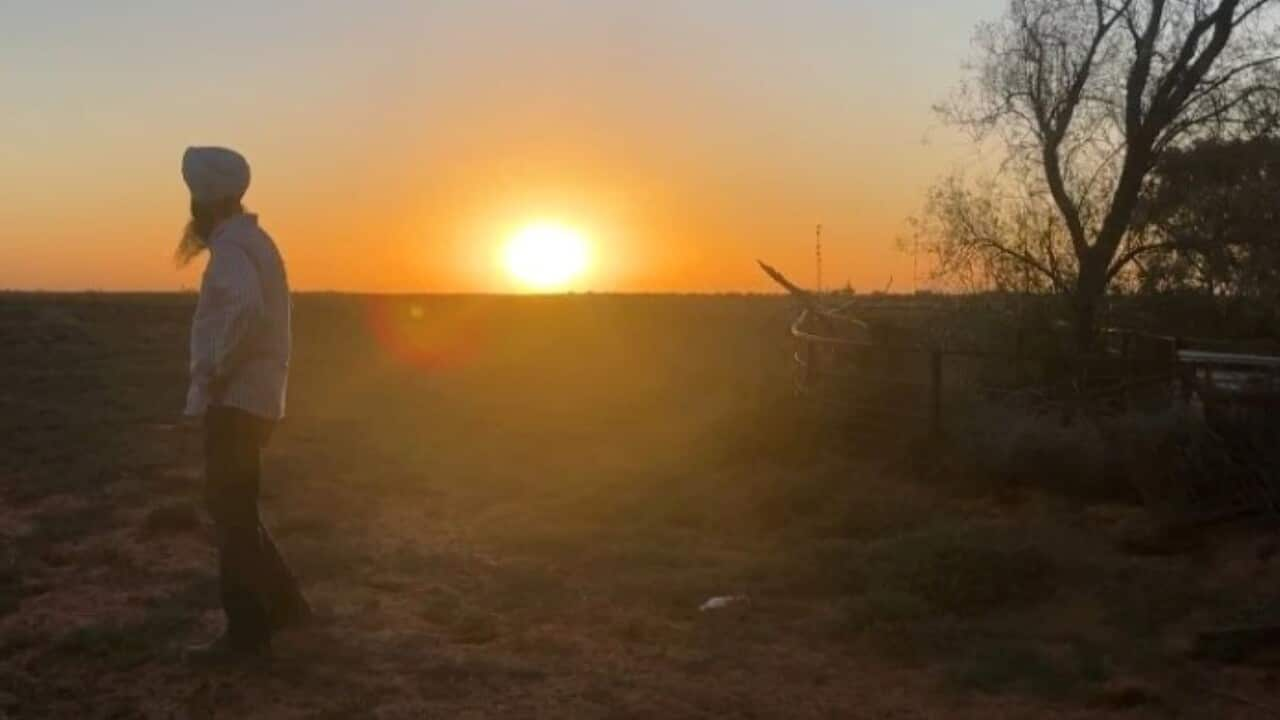Listen to Australian and world news, and follow trending topics with SBS News Podcasts.
TRANSCRIPT:
One thousand five hundred.
That’s how many people according to a new report are estimated to have died just last week in Europe, specifically due to climate change.
In a new study, researchers from Imperial College London, analysed temperatures and mortality data from 12 major cities, including London, Paris, Rome, and Athens.
They found that two-thirds of the 2,300 people who died during the recent European heatwave wouldn’t have, had it not been for the additional degrees added by human-caused global warming.
Dr Friederike Otto, who co-authored the study, explains.
"So we looked at 12 European cities that are sort of a rough geographical spread of the continent and our major cities where lots of people live, we find that overall there are estimated to be 2,300 people who have died during that heatwave. Of these 2,300, 1,500 have only died because of climate change, they would not have died if not for our burning of oil, coal, and gas in the last century."
This is the first rapid attribution study to go beyond linking climate change to weather events, and instead ties it directly to human deaths.
Elderly populations were especially vulnerable, with more than 1,100 of the deceased aged over 75.
Biostatistician at Imperial College London - Gary Konstantinoudis says it’s not just the heat itself, but the body's ability, or inability, to cope.
"Older people are reported to have impaired thermoregulatory systems. That is when the temperatures are very high, the generic population have good mechanisms to regulate heat whereas older populations, these mechanisms do not work properly, putting strain on their cardiovascular systems and thus putting them at higher risk for hospitalisation or mortality."
The study comes as southern Europe swelters through its second major heatwave of the season, with temperatures in Greece, Spain and southern France soaring above 42 degrees Celsius.
In Athens, a pharmacy sign displayed 44 degrees on Tuesday.
Tourists at the Acropolis were turned away at the gates for the second afternoon in a row, as Greek authorities closed the historic site to prevent heatstroke and other medical emergencies.
Red Cross volunteer Sophia Markelos explains what they are doing to help.
"We are here today because of the heatwave that has struck Athens, to provide waters, cold waters, as the Hellenic Red Cross to all the visitors that come up to the Acropolis and papers (leaflets) that have instructions on how to deal with the heatwaves - about the (heat) stroke and also suntan (sunscreen)."
Some tourists took the closure in their stride, but others were clearly disappointed.
Brandon Smith is a tourist from Australia.
"It's not ideal because when you're travelling away, you're not able to see it, so it's not good. And we're leaving.
And yes, we're leaving tonight, so we won't get to see it.
Journalist: Are you disappointed?
Smith: Very disappointed."
Further west, France’s second-largest city Marseille has been left scorched after a wildfire tore through 750 hectares of land on the city’s outskirts.
At least ten homes were destroyed, dozens more damaged, and though no deaths were reported, the blaze forced residents into temporary lockdown.
Officials say the fire started when a car caught alight on a nearby highway.
High winds and weeks of dry weather did the rest.
In Strasbourg, E-U Commissioner for Preparedness and Crisis Management, Hadja Lahbib, tells the European Parliament the situation is already becoming unmanageable in parts of Europe.
"In just the past ten days, thousands of hectares have burned in France, in Greece, Germany, Spain, Albania, Serbia and Turkey. We are witnessing the destruction of ecosystems that will take years, even decades to recover. And our citizens are feeling the impact of this extreme weather ... These are not distant warnings, they are the direct consequence of climate change, and they are sending us a very clear message."
The E-U has pre-positioned 22 firefighting planes, four helicopters, and 650 firefighters across vulnerable countries like Greece, Portugal and Spain.
Ms Lahbib says Europe must use every tool - technology, science, and political will - to respond before disaster strikes.
"Our teams are on standby 24/7. While national authorities led on wildfire response, we are working side-by-side with them every step of the way. And the EU can step in even before wildfires start. We are using science and technology to monitor droughts and detect fires at a very early stage. This includes the use of drones and AI to detect and respond to fires."
At the Vatican, Pope Leo celebrated a special Mass on Wednesday.
His homily focused on the moral imperative of climate action.
"On this beautiful day, first of all, I would like to invite everyone, starting with myself, to experience a bit of what we are celebrating, the beauty of the natural cathedral, you could say. ... At the beginning of the Mass, we prayed for conversion, our conversion, and I would like to add that we must pray for the conversion of many people inside and outside the Church who still do not see the urgency of caring for our common home."
From the gates of the Acropolis to the pews of St Peter’s Basilica, rising temperatures measured not just in degrees, but in lives lost.













